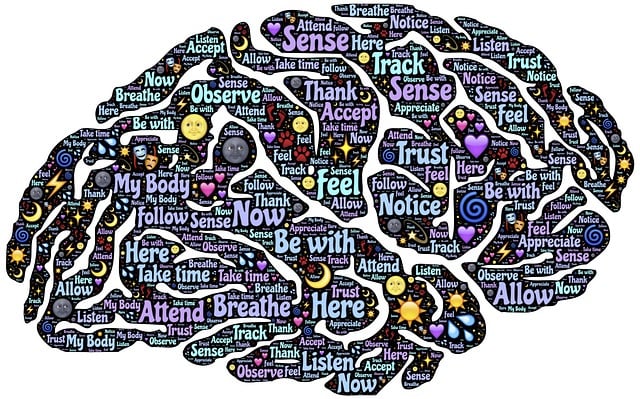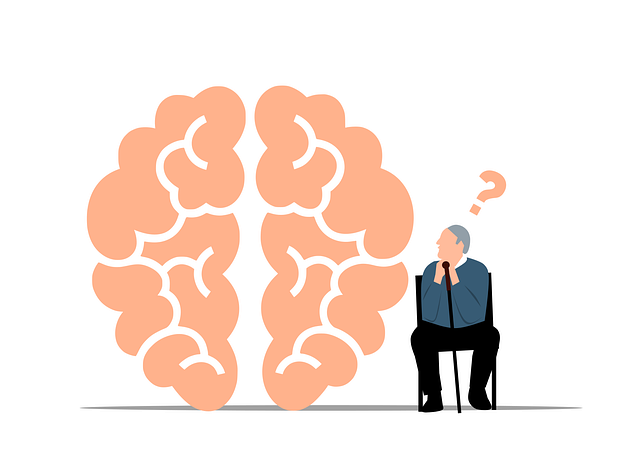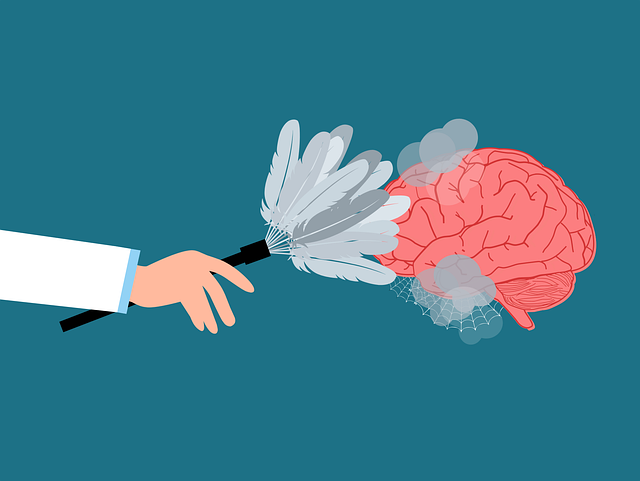Lone Tree Eating Disorders Therapy emphasizes the power of positive thinking as a core healing tool. By challenging negative thought patterns around food and body image, this approach promotes optimism, reduces mental illness symptoms, and fosters better communication. Through mindfulness exercises, gratitude practices, and conflict resolution techniques, individuals gain resilience to reframe challenges as growth opportunities, leading to improved mood management, reduced stigma, and long-term recovery from eating disorders. Lone Tree Eating Disorders Therapy guides clients in adopting these positive thinking strategies for lasting mental wellness.
Positive thinking exercises are transforming lives, especially in the context of eating disorders. This article delves into the power of positive mindset and its profound impact on mental health. We explore how identifying and challenging negative thought patterns can disrupt unhealthy behaviors, with a focus on Lone Tree Eating Disorders Therapy’s innovative approach.
Through a step-by-step guide, we reveal effective strategies for incorporating daily positive thinking exercises. Discover the remarkable benefits that foster recovery and hear inspiring success stories from Lone Tree, showcasing the tangible effects of this revolutionary therapy.
- Understanding Positive Thinking and its Impact on Mental Health
- Identifying Negative Thought Patterns in Individuals with Eating Disorders
- Incorporating Daily Positive Thinking Exercises: A Step-by-Step Guide
- Benefits of Positive Thinking for Overcoming Eating Disorders
- Real-Life Success Stories: How Lone Tree Eating Disorders Therapy Utilizes Positive Thinking
Understanding Positive Thinking and its Impact on Mental Health

Positive thinking is a powerful tool that can significantly influence mental health and overall well-being. At Lone Tree Eating Disorders Therapy, we recognize that cultivating a positive mindset is an essential aspect of healing and recovery. When individuals embrace positive thinking exercises, they engage in a process that challenges negative thought patterns and promotes a more optimistic and balanced perspective. This shift can lead to improved mood management, reduced symptoms of mental illness, and even stigma reduction efforts within the community.
By integrating positive thinking into daily routines, individuals can enhance their communication strategies, fostering healthier interactions with themselves and others. It empowers people to reframe challenges as opportunities for growth, boosting resilience and overall coping mechanisms. This approach is particularly beneficial in navigating the complexities of mental health issues, encouraging a sense of hope and self-belief that is crucial for long-term recovery.
Identifying Negative Thought Patterns in Individuals with Eating Disorders

Many individuals struggling with eating disorders also face a constant internal dialogue marked by negative thought patterns. These thoughts can be deeply ingrained and often manifest as self-criticism, fear, or unrealistic expectations related to food, body image, and control. For instance, someone with anorexia nervosa might engage in relentless self-deprecating thoughts about their appearance, while individuals with bulimia nervosa may experience a constant cycle of guilt and shame following binge eating episodes.
Identifying these negative thought patterns is a crucial step towards recovery. Lone Tree Eating Disorders Therapy emphasizes the importance of emotional regulation techniques to challenge and reframe these thoughts. Through cultural sensitivity in mental healthcare practice, therapists can create a safe space for individuals to explore their inner strength development by learning to recognize triggers and develop healthier coping mechanisms.
Incorporating Daily Positive Thinking Exercises: A Step-by-Step Guide

Incorporating daily positive thinking exercises into your routine can be a transformative practice, especially when supported by Lone Tree Eating Disorders Therapy. Start by dedicating just 10-15 minutes each day to this activity. Choose a quiet space where you won’t be disturbed, and set a comfortable posture, whether sitting or lying down. Begin with a brief moment of mindfulness, focusing on your breath to calm your mind. Then, reflect on the positive aspects of your life: relationships, achievements, or even small joys from the day before. This reflection can be as simple as writing down three things you’re grateful for in a Mental Wellness Journaling Exercise, a technique also valuable for Burnout Prevention Strategies for Healthcare Providers.
Next, visualize these positives, imagining the feelings they bring. This practice strengthens neural pathways associated with happiness and gratitude, helping to counteract negative thoughts. Gradually expand your practice by including Conflict Resolution Techniques to foster positive interactions and emotional well-being. Over time, you’ll find that these daily exercises enhance your overall mental wellness, providing a powerful tool for navigating life’s challenges.
Benefits of Positive Thinking for Overcoming Eating Disorders

Positive thinking is a powerful tool in the journey to overcoming eating disorders. It plays a pivotal role in shifting one’s mindset from negative self-perception and disordered eating behaviors to a more balanced, mindful approach. By fostering mental health awareness, positive thinking can help individuals challenge distorted thoughts and beliefs about food, body image, and self-worth. This transformative process is crucial for those seeking Lone Tree Eating Disorders Therapy, as it empowers them to develop resilience and cope with triggers more effectively.
Practices like mindfulness meditation and stress reduction methods are integral to cultivating a positive mindset. These techniques teach individuals to focus on the present moment, observe their thoughts without judgment, and accept emotions as they are. As Mental Health Awareness grows, understanding that positive thinking is not about ignoring problems but rather reframing them becomes evident. This shift in perspective can significantly improve one’s relationship with food, body, and self, paving the way for long-term recovery.
Real-Life Success Stories: How Lone Tree Eating Disorders Therapy Utilizes Positive Thinking

At Lone Tree Eating Disorders Therapy, we’ve witnessed firsthand how positive thinking exercises can transform lives. Our approach leverages powerful techniques to promote emotional well-being and mental wellness among our clients. By integrating stress reduction methods into our treatment plans, we help individuals challenge negative thought patterns and cultivate a more optimistic outlook.
Through personalized sessions, our therapists guide clients in exploring the benefits of reframing thoughts, practicing gratitude, and visualizing success. These positive thinking strategies not only support recovery from eating disorders but also equip individuals with lifelong tools to navigate life’s challenges. Real-life success stories within our practice highlight the profound impact these techniques can have on fostering resilience, self-acceptance, and overall happiness.
Positive thinking exercises, as demonstrated by successful programs like Lone Tree Eating Disorders Therapy, offer a transformative path toward mental health improvement. By identifying and challenging negative thought patterns, individuals can cultivate resilience and hope, ultimately enhancing their ability to overcome eating disorders. This step-by-step guide provides a powerful toolkit for anyone seeking to harness the beneficial impact of positive thinking.











